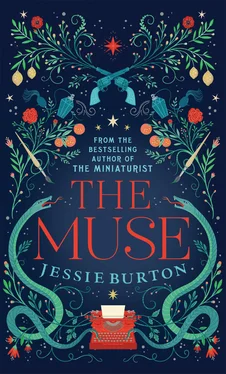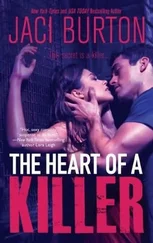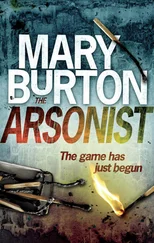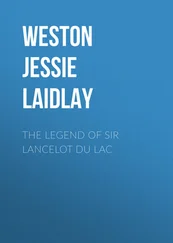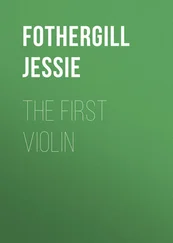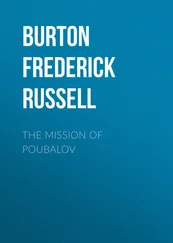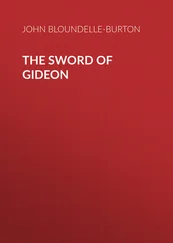The woman on his right looked happy. She had an open face — she couldn’t have been much more than a teenager really, but in those old photos, girls always look like women before their time. She was really laughing; her eyes were almost invisible, they were so creased. She had that cheery unselfconsciousness that always makes a person beautiful, however unremarkable their face. Her hairstyle was half-crimped, close to her head in the thirties style, but flyaway, as if she didn’t care. She was pointing to the painting, and in her hand she held a brush.
‘Who’s the woman?’ I said.
Quick closed her eyes. ‘His muse, probably. Or just a model.’
‘He’s an Italian Paul Newman,’ I said, and Quick laughed.
The photo jarred something in me. It was so potent, so full of a story. I flipped it over, and amidst the marks of time, at the bottom left, I read the handwritten caption, O and I. .
‘Did you see this, Quick — who are O and I?’ I asked. ‘Is it I for Isaac?’
But Quick was no longer in the mood for speculation. ‘Don’t stand there gawping, Miss Bastien,’ she said. ‘We haven’t much time. Go and copy that for Mr Scott, will you? Off you go.’
Three days later, Quick invited me to her house. I had mentioned in passing that my birthday was coming up, and I found a small card, left on my desk, asking me to lunch on the Saturday. I was thrilled. It was not normal for employers and employees to mix like this, but my curiosity overrode any reservations I might have had. I told no one I was going.
My shoes clipped the pavement and my sense of adventure rose. It was the very last of summer; London was a motor-car fume, a cigarette stub on the paving, a cirrus sky. By now, I was a fully fledged observer of the uneven spurts and scars of London housing. The postcodes, the brick, the rose bush absent or present, the foot scraper, the height of your front steps or the lack thereof was a language I had learned to speak. You couldn’t live here and not notice the difference where roads reigned in peace or chaos, a mangy dog lolling by the gutter, ragged kids, a neat box hedge, the flicking net curtain. In London, there were many different ways to live, but few to change the life you had.
The bombings of the war had left odd patterns in so many streets, and Quick’s long road was a familiar mongrel, starting with a handful of stately Victorian survivors, a slew of Edwardian terraces, a sudden and squat apartment block that had been erected in the fifties, with wide white balconies, concrete walls and a midget ivy that someone had planted in an attempt at greenery, but which barely reached the first-floor window. Then, further along, was where she lived, on the edge of Wimbledon Common.
I stood before Quick’s house. It was a low-slung, pale-blue-coloured Georgian cottage. You but half closed your eyes, and a woman with a muslin dress and bonnet could so easily just have slipped within. Why the woman working if she have a place like this? I wondered. I thought Cynth would love to see this cottage, and how unlikely it was she ever would. I used the knocker, an old copper handle specked with verdigris, and waited. There was no reply. Honeysuckle spilled everywhere around me, framing the door. From within I could hear the strains of a classical piece, the simple steps of a piano, complicating itself as the stanzas went on.
I wondered if the burn on my back was indeed eyes watching me, or just my worried imagination. I hadn’t been into a white person’s house, not even Lawrie’s. This was, shall we say, a very white street. The bolt slammed back, the door pulled open and in a rectangle of gloom, Quick was before me. That silvery short hair, those liquid pupils shrinking in the sunlight. She looked smaller than at work. ‘You came,’ she said. I had never entertained the thought that I might not. The piano was much louder now, playing through the house like a theatrical opener to our pas de deux.
She gestured for me to step inside. It was a deep house, set back, and the floor stretched down a corridor, on towards a glimpse of garden, where leaves moved in a light breeze and the silhouette of a solitary cat was shaped like a waiting vase. ‘Garden?’ Quick asked, but it was not a question really, for she was already walking towards it. She was taking delicate steps as if she didn’t quite trust her own feet. I swivelled my eyes to the left where the front room opened out, and saw a brief glance of polished floorboards, wide rugs, pot plants and an upright piano. Wherever I looked, the front room, the corridor — the whitewashed walls were bare of pictures.
It looked decidedly un-English, no heavy Victorian tiles underfoot, no raised flock wallpaper, no cornicing, no heavy wood. There were bookshelves though, and I longed to pry. To the right, a flight of stairs began; I doubted I would ever see where they led. Another room opened off to the left as we carried on down the corridor, towards the square of light. It had a desk in it, and a wind-up gramophone from where the dying notes of the classical recording was emanating. I thought it was quite old fashioned of her to have a gramophone.
When we reached the kitchen and the open garden door, Quick stopped. The cat skittered out into the undergrowth, where it settled, a pair of pale-yellow eyes regarding me between the leaves. ‘Lunch,’ Quick announced. A large tray waited on the table. On it were bread rolls in a basket, a brash yellow cheese, some cold chicken legs, a pork pie and small red tomatoes, jewels of condensation running plumply off their sides. It all looked good, and I said as much.
‘It’s very simple,’ Quick said. I offered to carry the tray into the garden. ‘Not at all,’ she said, batting me away, before conceding, ‘but perhaps you can take those.’ She indicated a large earthenware jug of water and two glasses, and I took them outside, following her stiff gait. ‘Something stronger?’ she asked over her shoulder, and this time it was a question. I declined.
Her garden was not large, but it was full of trees and bushes, and pink hollyhocks, more honeysuckle, the drone of accompanying bees, a little wilderness at the end. A church bell rang in the distance, a sombre line of twelve dongs to hold the time before it slipped away once more.
The garden moved in the breeze. Quick put the tray down on a stone table and a car revved in the road. ‘Pull up a pew,’ she said, gesturing to one of the three sun chairs. Two were old and saggy and had clearly seen much use. I obeyed, compelled by her authority. Lowering herself down gingerly into one of the older chairs, she slowly extended one leg after the other upon the grass. Kicking off velvet slippers, she revealed petite bare feet, browned by exposure. Looking at Quick’s ten toes, I felt trussed in my winkle-pickers, my wedged pill-box hat, my plain green dress. She pushed a pair of sunglasses down onto her face and I lost sight of her expression.
‘There are days like this,’ she said, ‘that I wish could go on for ever.’ She poured us each a glass of water, struggling a little with the weight of the unwieldy jug. She glugged her glass and smacked her lips. ‘Please eat,’ she said. In her own habitat, she seemed much more relaxed. Gone was the haunted expression in Reede’s office, even the debonair diffidence she sometimes employed for me and Pamela. I took up a quarter of the pork pie and began to eat it with a piece of bread roll. It was a good pie; the pastry melting away, the cool of the jelly, the rich shock of pig.
‘I hope we’re not giving you too much to do at the office?’ she asked.
‘Oh, no,’ I said. ‘It’s all manageable.’
‘Good.’
‘How’s your married friend?’
I looked at Quick, worried she was a mind-reader. ‘Fine, thank you. She and her husband have moved to Queen’s Park.’
Читать дальше
